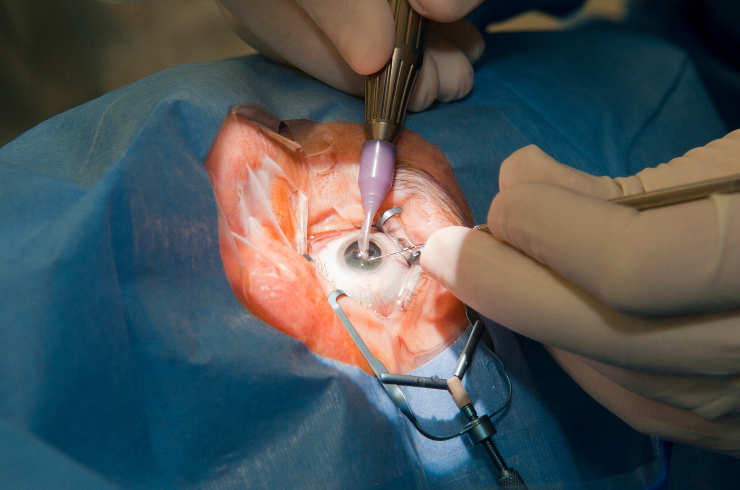Refractive SX
- Home
- Services
- Refractive SX

Understanding Refractive Surgery
Refractive surgery is a type of eye surgery aimed at correcting common vision problems such as myopia (nearsightedness), hyperopia (farsightedness), and astigmatism, thereby reducing or eliminating the need for glasses or contact lenses. These procedures reshape the cornea or alter the eye’s lens to improve visual acuity.
Common Types of Refractive Surgery
There are several popular types of refractive surgery, including:
- LASIK (Laser-Assisted In Situ Keratomileusis): A widely performed procedure that uses a laser to reshape the cornea and correct refractive errors.
- PRK (Photorefractive Keratectomy): In this procedure, the outer layer of the cornea is removed, and a laser is applied directly to reshape the cornea for vision correction.
- LASEK (Laser Epithelial Keratomileusis): Similar to PRK, but the outer layer of the cornea is preserved and replaced after the laser treatment.
- SMILE (Small Incision Lenticule Extraction): A minimally invasive technique that involves creating a small incision in the cornea to remove a lenticule of tissue, reshaping the cornea without creating a flap.
- Visian ICL (Implantable Collamer Lens): A lens implanted in the eye that can provide an alternative to corneal reshaping, ideal for patients with high prescriptions.
Eligibility for Refractive Surgery
Not everyone is a candidate for refractive surgery. Candidates should typically meet the following criteria:
- Be at least 18 years old
- Have a stable prescription for at least one year
- Have healthy corneas with no signs of disease
- Be free from certain eye conditions, such as cataracts or severe dry eye
- Have realistic expectations about the outcomes of surgery
Benefits of Refractive Surgery
Refractive surgery offers numerous benefits, including:
- Reduced dependence on glasses and contact lenses
- Improved visual clarity and quality of vision
- Quick recovery time with immediate results for many procedures
- Opportunities for lifestyle changes, such as increased outdoor activities and sports
Potential Risks and Complications
While refractive surgery is generally safe, there are potential risks involved. These may include:
- Overcorrection or undercorrection of vision
- Dry eyes or fluctuations in vision
- Nighttime glare or halos around lights
- Infection or inflammation
- Vision loss, though rare
The Consultation Process
Before undergoing refractive surgery, patients should expect the following during the consultation:
- A comprehensive eye examination to assess overall eye health and determine the prescription.
- Discussion of medical history, current medications, and any eye conditions.
- Detailed information about the specific procedure to be performed and expected outcomes.
- Informed consent discussions, outlining risks and benefits.
Recovery After Refractive Surgery
Recovery time varies by procedure but generally includes:
- Resting the eyes and avoiding strenuous activities for a brief period.
- Using prescribed eye drops to enhance healing and minimize discomfort.
- Attending follow-up appointments to monitor healing and vision improvement.
Consult Our Refractive Surgery Specialists
If you’re considering refractive surgery or want to learn more about your options, contact us today to schedule an appointment with our experienced eye care specialists. We are dedicated to providing personalized care and helping you achieve your vision goals!

